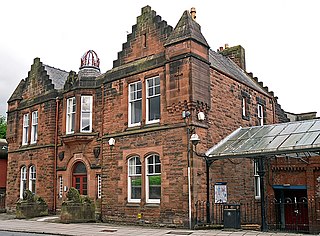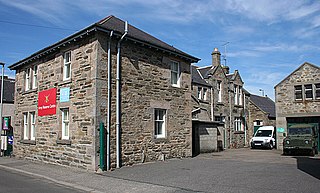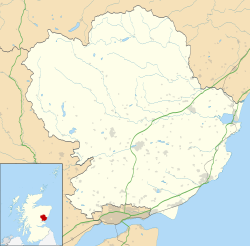
The 51st Highland Volunteers is a battalion in the British Army's Army Reserve or reserve force in the Scottish Highlands, forming the 7th Battalion of the Royal Regiment of Scotland, also known as 7 SCOTS. It is one of two Reserve battalions in the Royal Regiment of Scotland, along with 52nd Lowland, a similar unit located in the Scottish Lowlands.

The Glasgow Highlanders was a former infantry regiment of the British Army, part of the Territorial Force, later renamed the Territorial Army. The regiment eventually became a Volunteer Battalion of the Highland Light Infantry in 1881. The regiment saw active service in both World War I and World War II. In 1959 the Highland Light Infantry was amalgamated with the Royal Scots Fusiliers to form the Royal Highland Fusiliers. The Glasgow Highlanders was later amalgamated into the 52nd Lowland Volunteers in 1967.

153rd Infantry Brigade was a formation of Britain's Territorial Force/Territorial Army that was part of 51st (Highland) Division in both World Wars. From its origins in the 19th Century Volunteer Force it was based in Aberdeen and was composed of Highland battalions. It served on the Western Front in World War I, and after it was captured at Saint-Valery-en-Caux early in World War II it was reformed from its 2nd Line and saw action in North Africa, Sicily and North West Europe. It continued serving postwar until the reduction of the Territorial Army in the 1960s.

The Highland Cyclist Battalion was a bicycle infantry battalion of the Territorial Force, part of the British Army. Formed as part of the Volunteer Force in 1860, it became a Volunteer Battalion of the Black Watch in 1881. In 1909 it became an independent unit and served in the United Kingdom throughout the First World War. In 1920 it was converted as part of the Highland Divisional Signals.

The Haldane Building is a former drill hall at Hill Street in Garnethill, Glasgow.

The Paton Street drill hall is a military installation in Galashiels, Scotland.

The Loreburn Hall is a military installation in Dumfries, Scotland.

The Hunter Street drill hall is a military installation in Kirkcaldy, Scotland.

The Ferry Road drill hall, known locally as Seaforth Barracks, is a military installation in Dingwall, Scotland.

The Old Bank Road drill hall is a military installation in Golspie, Scotland.

The Cooper Park drill hall is a former military installation in Elgin, Scotland.

The Guild Street drill hall is a former military installation in Aberdeen, Scotland.

The Union Street drill hall is a military installation in Keith, Scotland.

The Kinneskie Road drill hall is a former military installation near Banchory, Scotland.

The Rose Street drill hall was a military installation in Inverness, Scotland.

The High Street drill hall is a former military installation in Paisley, Scotland.

The Princes Street drill hall is a former military installation in Stirling, Scotland.

Londesborough Barracks is a military installation in Kingston upon Hull, England.

The Bridge Street drill hall is a former military installation in Macclesfield, Cheshire.




















